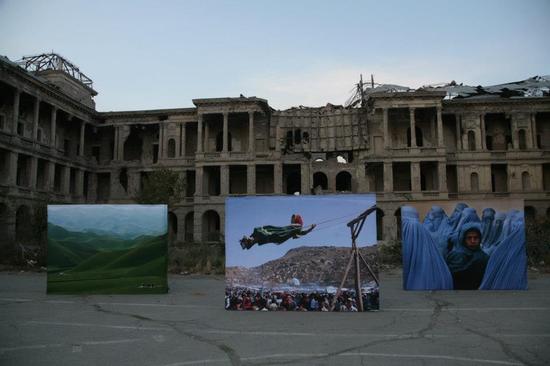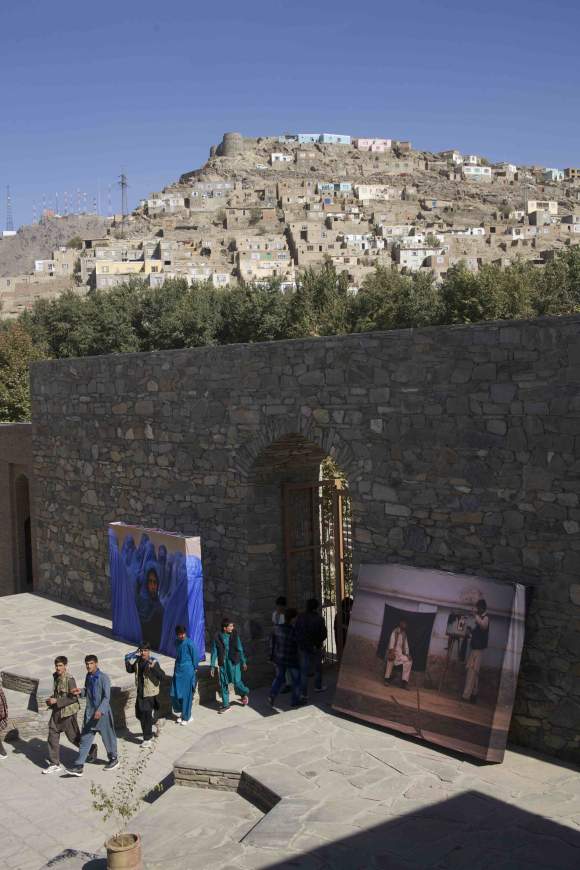"Would you be interested in coming to Afghanistan?"
That's a loaded question.
I was going back and forth on email with Shannon Galpin, friend and founder of nonprofit organization Mountain2Mountain. Since I met Shannon in the spring of 2010, she has become the kind of friend that is not only an inspiration, but also the kind of person that keeps you grounded.
The invite was to come along to Afghanistan to help produce the organization's latest endeavor, several full-scale public photo exhibits in and around Kabul. I immediately knew that I would say yes, but I asked for time to think about it.
Afghanistan.
Say that word out loud to yourself a couple of times and think of the images that emerge. Conflict, war, Taliban, burqas... the list is endless. But I knew that the time had come to push my comfort zone, to take part in a project that focused on the beauty of a country, to have one-on-one interactions that would change my perspective, and most importantly, to bring those stories home.

My previous travel experiences have only been personal; choosing a destination for the mere adventure of it. But this time, a new component came into play. Choosing to go to Afghanistan was about choosing to volunteer my time to work on a specific project that was a part of the greater good. Directly taking part in Mountain2Mountain's efforts, helping to produce a photo exhibit, and hopefully expanding the organization's reach in the process.
Just like Shannon, I believe in voice, and I believe in the power of art and culture. A conflict zone is not a cultural dead zone, in fact, it's almost a blank canvas, ready for the birth of creativity. Supporting that creativity is supporting a flourishing society.
Kabul is full of gems of inspiration, from female graffiti artists to rock concert. It's also full of people living their everyday lives, going to work, going to school and doing so many of the everyday things that we as a world share.
I asked an NGO worker what his perspective on Afghanistan was, and he gave a simple response, "the people are sweet, the country is a mess."
But when a world is so far away, we forget that a country is in fact a conglomerate of people. Individuals. Individuals whom we often share more similarities with than differences.
Walking down a path in the public Babur Gardens in Kabul over Eid festival weekend, a family was sitting in the grass drinking tea. The father stood up with a glass mug of tea in his hand and summoned one of the exhibition's photographers Tony and I over to him. It was the kind of summon that you know you have to say yes to.

We walked over and were invited to sit down with the family. They spoke no English so we were stuck with my mediocre Dari, pretty much reserved to "do you speak English?" "I speak a little Dari" "I like Afghan food" and some scattered words and phrases here and there that are good for making Afghans laugh at your language efforts.
But that didn't matter. There was pointing and smiling and laughing, and that was enough to share a moment together.
The girls of the family, all in their teenage years, were dressed in colorful scarves, modern in their loose fit. Their mother wore an all black dress and headscarf, her face worn from the sun, wrinkled but warm. Every time I looked at her she gave me the kind of smile only a mother can give.
The father of the family held a baby, her eyes outlined in black liner, which I later learned is a common custom in some families. We were served more tea and when the girls saw that I had a stack of bracelets on my wrist, one of them moved over next to me and placed a bracelet of plastic hearts over my hand. "For you," she said in Dari, smiling shyly.
What does it mean to travel consciously? It means being aware, open to new interactions. It means opening your heart and erasing expectations. It means putting trust in other people. It means finding a way to connect with people, no matter how different you may be.
Afghanistan is not a country that you can always travel freely. It is a conflict zone with security risks. There are checkpoints and military with AK 47s. There are suicide bombings. There is poverty. But there are also people. Mothers. Fathers. Sisters. Brothers. There are communities. The sun rises in the morning and sets in the evening, and in between people go about their everyday lives.
When we are surrounded by new realities, we are forced to look at our own. Reminded of the importance of being thankful for what we have, and respectful of the individual lives of others. Travel makes us find our common humanity, and breaks a place down from photos and news headlines to personal interactions. When we know a people, we can know a place. And when we know a place, we can live with more empathy, conscious of our own everyday decisions and how they affect those around us.
We must all build community. We must all support the power of voice. We must respect our differences. We must cultivate a culture of living consciously, of respecting our peers and neighbors and working together to forge a way forward, and that holds true no matter what place we find ourselves in.
Originally published on Goodlifer.